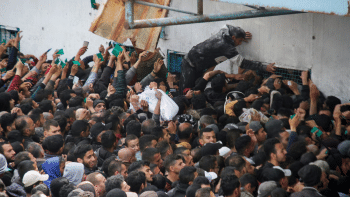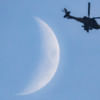A long-overdue call for Gaza truce, but will Israel listen?

It is a real travesty that it took the UN Security Council more than five months to find a unified voice on the need for ending Israel's unjust war in Gaza, after the United States, its closest ally, abstained from vetoing a resolution calling for an immediate ceasefire, in a shift from its previous position of blindly supporting Israel's unrelenting assault on Palestinians. But now that a resolution has finally been passed, it is extremely important that it is implemented without any delay. The number of Palestinians killed by Israel has already exceeded 32,000, with the majority of them being women and children. Gaza is already the "most intense starvation catastrophe of recent decades", with human rights organisations warning of an impending famine unless Israel's aggression stops and aid is immediately allowed to enter the strip.
Israel, of course, has maintained a below-starvation-level food policy for Gaza for years now, allowing below-bare-minimum necessities to enter the Palestinian territory. Moreover, in recent times, it has approved some of the biggest settlement projects—forcibly removing Palestinians from the small sliver of lands they have left, demolishing their homes, and building new ones for Jewish settlers—in violation of UN resolutions. On the same day that the UNSC passed the ceasefire resolution, a report by a UN special rapporteur was leaked to the public revealing that Israeli actions in Gaza "qualify" as genocide on at least three grounds. A case against Israel's genocide is already underway at the International Court of Justice.
But despite calls from all over the world for a ceasefire and an end to such horrific atrocities, Israel has remained adamant in its position, emboldened by the unconditional support—diplomatic, financial and military—it has been receiving from Western countries. Given these realities, the UNSC ceasefire resolution is quite significant for the Palestinians. The fact that it has happened highlights a slight change of position from the one country that has most protected Israel from any consequence so far. However, given Israel's attitude, it might be too early to be hopeful about a true ceasefire. As if to validate such suspicions, Israeli air strikes killed at least 70 people in north and south Gaza early Tuesday, soon after the UNSC's truce call.
Another issue of concern is that the ceasefire that has been called for is a temporary one. It is high time the UNSC and all its members recognised the gravity of the atrocities being inflicted against the Palestinians. They must take steps to enforce a permanent ceasefire as well as withdrawal of all Israeli forces from all Palestinian lands.


 For all latest news, follow The Daily Star's Google News channel.
For all latest news, follow The Daily Star's Google News channel. 










Comments